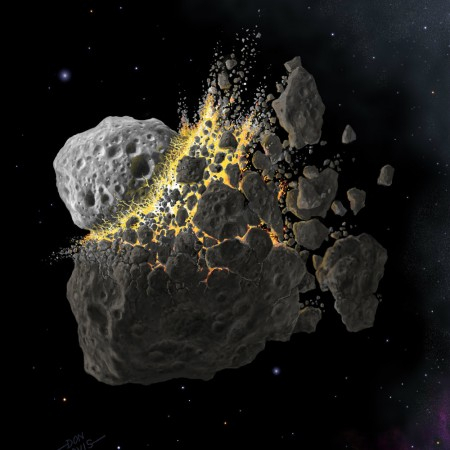
Several top space experts had previously predicted that a rogue asteroid from deep space will one day collide with the earth, causing massive destruction everywhere. Now, a study conducted by experts at the National Astronomical Observatory in Japan has found that asteroids lurking in the asteroid belt could one day approach Earth for a potential collision.
As per the research report, the gravitational pull of asteroids could knock asteroids off their orbit, thus elevating the chances of a deadly collision with the earth. The research led by Kenta Oshima, a researcher at the National Astronomical Observatory of Japan revealed that many asteroids in the asteroid belt are tucked in the shadow of Jupiter, and as a result, it is very much difficult to see them from the earth. However, once the orbits of these objects became unstable, it will pose a huge threat to the blue planet.
Adding up to the worries, Carl Ejnar Nielsen, from the University of Copenhagen, has claimed that humans will have less time to take defensive measures if an asteroid from the asteroid belt between the orbits of Mars and Jupiter heads towards Earth.
"If an asteroid is deflected from its orbit in the asteroid belt to hit Earth half an orbit later, we have precious little time to act. We may also miss an interstellar interloper, as its trajectory can be obscured by the Sun while on its inbound leg towards the Sun, after which it will present its dark side to us while outbound, maybe to hit with no warning in the middle of the day," wrote Carl Ejnar Nielson on Q&A website Quora.
Earlier, Natalie Starkey, a top space scientist and author of the book 'Catching Stardust', had revealed that the best way to combat asteroid strikes in the future is by conducting pre-emptive nuclear blasts. Starkey believes that pre-emptive strikes will help humans to stop that radioactive rain which may pour down the earth if we explode asteroids using nuclear weapons in the final moments of the collision.
"If the object was one that passed Earth frequently, moving ever closer to impact with each orbit, then it could be blown up in a pre-emptive strike on one of its prior close-Earth visits before the one that was predicted to cause total annihilation, nuking it as it was heading away from Earth," said Starkey.









